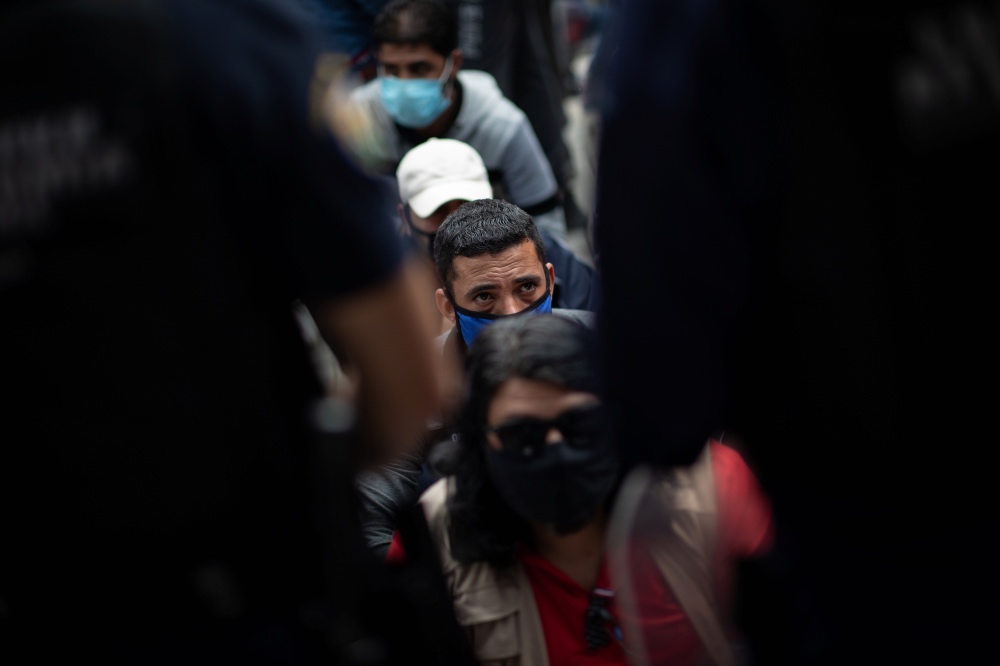Geneva, Switzerland
Reuters
Nearly 80 million people worldwide, or one per cent of humanity, were uprooted at the end of 2019 after fleeing wars or persecution, a record figure capping a “tumultuous” decade of displacement, the United Nations said on Thursday.
The figure rose by some nine million from a year earlier and is close to double the 41 million recorded in 2010, despite COVID-19 restrictions slowing down movement, the UN refugee agency UNHCR said.

Refugees wearing face masks as protection from the spread of the coronavirus disease (COVID-19) sit in front of a police cordon outside the UNHCR offices, during a protest against the government decision that says they should leave their accommodation provided by European Union and UNHCR funds by the end of May, in Athens, Greece, on 29th May. PICTURE: Reuters/Alkis Konstantinidis/File photo.
Syrians, Venezuelans, Afghans, South Sudanese, and stateless Rohingya from Myanmar top the list of 79.5 million refugees, asylum seekers and internally-displaced, it said in its annual flagship report, Global Trends.
“This almost 80 million figure – the highest that UNHCR has recorded since these statistics have been systematically collected – is of course a reason for great concern,” said Filippo Grandi, UN High Commissioner for Refugees.
“This is by the way approximately one per cent of the world population,” he told a news briefing.
Some 73 per cent of refugees seek asylum in a neighbouring country, defying the populist notion that they flood to the West, Grandi said.
“This continues to be a global issue, an issue for all states but an issue that challenges most directly the poorer countries, not the rich countries – in spite of the rhetoric,” he said of the displacement.
The exodus includes five million Venezuelans who have fled their country mired in an economic and political crisis. Some 3.6 million of them were not counted in its previous statistics, but are now deemed in need of international protection, the UNHCR said.
Most Venezuelans have gone to Colombia, Peru, Ecuador, Brazil and Chile. An estimated 30,000 to 50,000 have returned to their homeland since April, Grandi said.
“In most of the countries Venezuelans live off of the informal economy and many even qualified people unfortunately have had to live a life of subsistence basically, selling vegetables in markets, doing menial work, it’s been really very precarious,” he said. “And with lockdowns, a lot of these jobs have disappeared almost overnight.”
But restrictions imposed because of the pandemic have slowed displacement generally, Grandi said.
“For the time being, most likely it has actually put breaks on movements because of the difficulties in moving. There has been basically no international travel, there has been very little ability to cross borders,” he added.
Some 107,000 refugees were resettled in third countries last year, the UNHCR said.
“This is a declining figure unfortunately. The resettlement to the US as you know has declined dramatically. The biggest resettlement country today is Canada,” Grandi said.
Canada admitted 31,100 refugees for resettlement, the United States 27,500 and Australia 18,200, UNHCR figures show.






